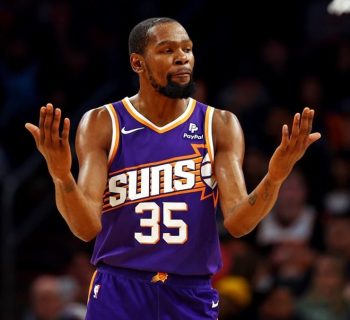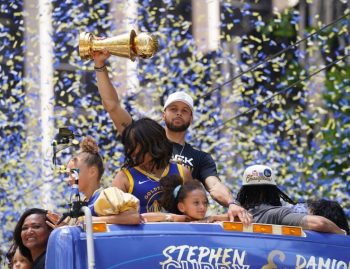NBA
NBA Daily: Down But Not Out, Kemba Walker Must Seize His Moment

It’s been a long and winding road back into the spotlight for Kemba Walker.
In 2011 with the University of Connecticut, Walker set the world on fire as he led the Huskies on an improbable run: an 11-game stretch that culminated in a Big East title and a National Championship. Dubbed “Cardiac Kemba,” he played his best when it mattered most — and was expected to do the same in short order at the NBA level.
Of course, things don’t always go as expected. Walker was drafted by the Charlotte Bobcats (now the Hornets) and, in eight seasons of futile basketball, made the postseason just twice, his efforts constantly thwarted by the poorly constructed roster around him.
Now, nearly a decade later and with a new team, Walker is once again set to take center stage in what should be his first extended postseason trip.
And, to advance, the Boston Celtics need him to truly seize the moment and recapture some of that old magic.
To his credit, Walker has already had a strong postseason — but it’s become evident that the Celtics need more of him if they are to advance. In their first round sweep of the Philadelphia 76ers, Walker averaged 24.3 points, 4.3 rebounds, 3.8 assists and was remarkable in the clutch. In their first two against the Toronto Raptors, it was more of the same: a Game 1 blowout, with a shot from Walker to slam the door on Game 2.
Game 3, however, signaled a shift in the series and ended in arguably the most demoralizing way possible. And Game 4 was just plain ugly for everyone, Walker included.
Boston is now faced with a best-of-three set against the defending champion Raptors, with a pivotal must-win Game 5 on the horizon. Luckily for the Celtics, the key to victory isn’t some critique buried in the film or lost in Toronto’s smothering defense.
In fact, it’s staring them right in the face; this may be Jayson Tatum’s team now — and he has certainly led the way this postseason — but it’ll be up to Walker to push the team beyond Toronto and across the series’ finish line.
But what could Walker do to turn the tide? It’s simple: hunt for his shot and assert himself in Boston’s offense.
Walker can’t be faulted for deferring to Tatum when they share the floor. Who could? The third-year wing has proven himself a bonafide star, one certainly worthy of deferring to in most instances. That said, it’s hard to argue against the fact that, when Walker is getting his shot off, the Celtics are just a better team.
In the 26 games this season (regular and post) in which Walker either didn’t play or had fewer than 10 field goal attempts, the Celtics sat at a positive but uninspiring 16-10.
But when he took 10 or more shots? That 16-10 record skyrocketed to 40-16, good for a nearly 60-win pace over an 82 game schedule.
The presence of an aggressive Walker would benefit everyone, not just his own personal box score. Walker can leverage his shot to keep defenses honest against Tatum, who has been consistently doubled by Toronto’s defenders, while opening up more space for Jaylen Brown, Gordon Hayward (upon his return from an ankle injury suffered against the 76ers) and others. And, unless the goal is to watch the offense nosedive on a regular basis, it is imperative that Walker, as the only player outside of Tatum that can generate his own shot on a consistent basis, stay aggressive, especially during those periods when Tatum is on the bench and doubly so when Brown and or Hayward join him on the sideline.
For those that haven’t been paying attention, none of that happened in Game 4. In what was, by far, Boston’s worst game of the postseason, Walker launched just nine shots in over 40 minutes, a fact he deemed “unacceptable” before he vowed to be more aggressive going forward.
Of course, Walker can take that mentality and apply it to the other side of the ball, too.
Marcus Smart is the team’s defensive poster child. But Walker has proven an invaluable, if not unheralded, defender in his own right. Despite his 6-foot stature, the diminutive point guard has lightning-quick hands and has shown a willingness to take a charge — Walker was seventh (18) in the regular season in charges drawn, while he is fourth (4) so far this postseason — or dive onto the floor for the loose ball.
Walker is willing to put his body on the line if it would put the Celtics in the best position to win games — and that type of effort, that resilience, is contagious. If he can continue to put forth an impressive effort on that end, it might just give Boston an advantage in what should prove a chippy final three games to the series.
Had Hayward not severely sprained his ankle in the first round, we would be looking at a much different series between Boston and Toronto. The onus of their success at this critical juncture certainly wouldn’t have fallen solely on Walker’s shoulders.
But Hayward isn’t here, while Tatum and Brown can only do so much on their own. For now, it is up to Walker to be that difference-maker that the Celtics so desperately need. This series might just prove his defining moment and, if he can reach out and grab it, “Cardiac Kemba” could push the Celtics to a whole new level, beyond the Raptors and, perhaps, to the NBA Finals.













